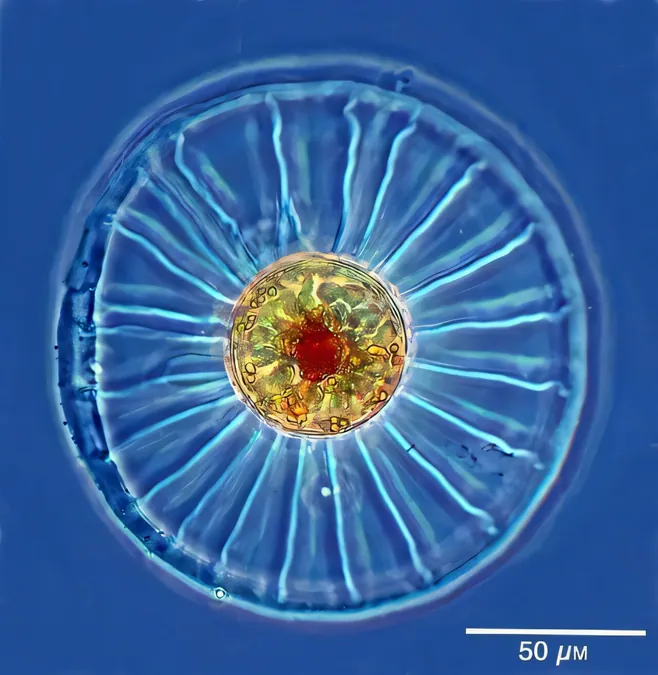
Phytochromes: The Microalgae's Secret 'Eyes' Helping Them Navigate Ocean Depths!
2024-12-18
Author: Sophie
Did you know that phytoplankton—the tiny powerhouses of the ocean—are instrumental in keeping our planet healthy? These microscopic organisms are not only responsible for producing around half of the Earth’s oxygen through photosynthesis, but they also play a crucial role in regulating the climate by absorbing carbon dioxide from the atmosphere. Yet, despite their importance, many of the mechanisms driving their distribution in our oceans remain a scientific mystery.
A groundbreaking study by scientists from CNRS and Sorbonne University has shed light on one of these enigmatic processes. They focused on diatoms, a significant group of phytoplankton, and discovered that these tiny organisms have developed sophisticated sensors within their genomes called phytochromes. These sensors act like 'eyes', allowing diatoms to perceive variations in the light spectrum within the water column.
Why is this significant? In the unpredictable and turbulent waters of high latitude, temperate, and polar regions, light conditions can change rapidly. By detecting shifts in light, diatoms can determine their vertical position in the water, which is critical for optimizing their biological activities, particularly photosynthesis. This ability to 'see' and respond to their environment enables them to thrive in conditions that might otherwise threaten their survival.
The research team analyzed environmental genomic data gathered from marine sampling campaigns conducted by the Tara Oceans initiative. Their findings revealed something fascinating: only diatoms found in waters beyond the Tropics of Cancer and Capricorn possess phytochromes. These regions experience marked changes in seasonality with significant fluctuations in day length, indicating that these microalgae have a unique adaptation to measure seasonal time—a potential game-changer for their survival and productivity in varying climates.
As climate change continues to impact marine ecosystems, understanding how these adaptable microalgae operate could provide vital insights into maintaining ocean health. By unveiling the secrets of phytoplankton and their remarkable light-sensing abilities, researchers may be one step closer to unraveling the intricate balance of our planet's life-support systems. Stay tuned, as studies like this could reshape our understanding of marine biology and environmental sustainability!









 Brasil (PT)
Brasil (PT)
 Canada (EN)
Canada (EN)
 Chile (ES)
Chile (ES)
 España (ES)
España (ES)
 France (FR)
France (FR)
 Hong Kong (EN)
Hong Kong (EN)
 Italia (IT)
Italia (IT)
 日本 (JA)
日本 (JA)
 Magyarország (HU)
Magyarország (HU)
 Norge (NO)
Norge (NO)
 Polska (PL)
Polska (PL)
 Schweiz (DE)
Schweiz (DE)
 Singapore (EN)
Singapore (EN)
 Sverige (SV)
Sverige (SV)
 Suomi (FI)
Suomi (FI)
 Türkiye (TR)
Türkiye (TR)